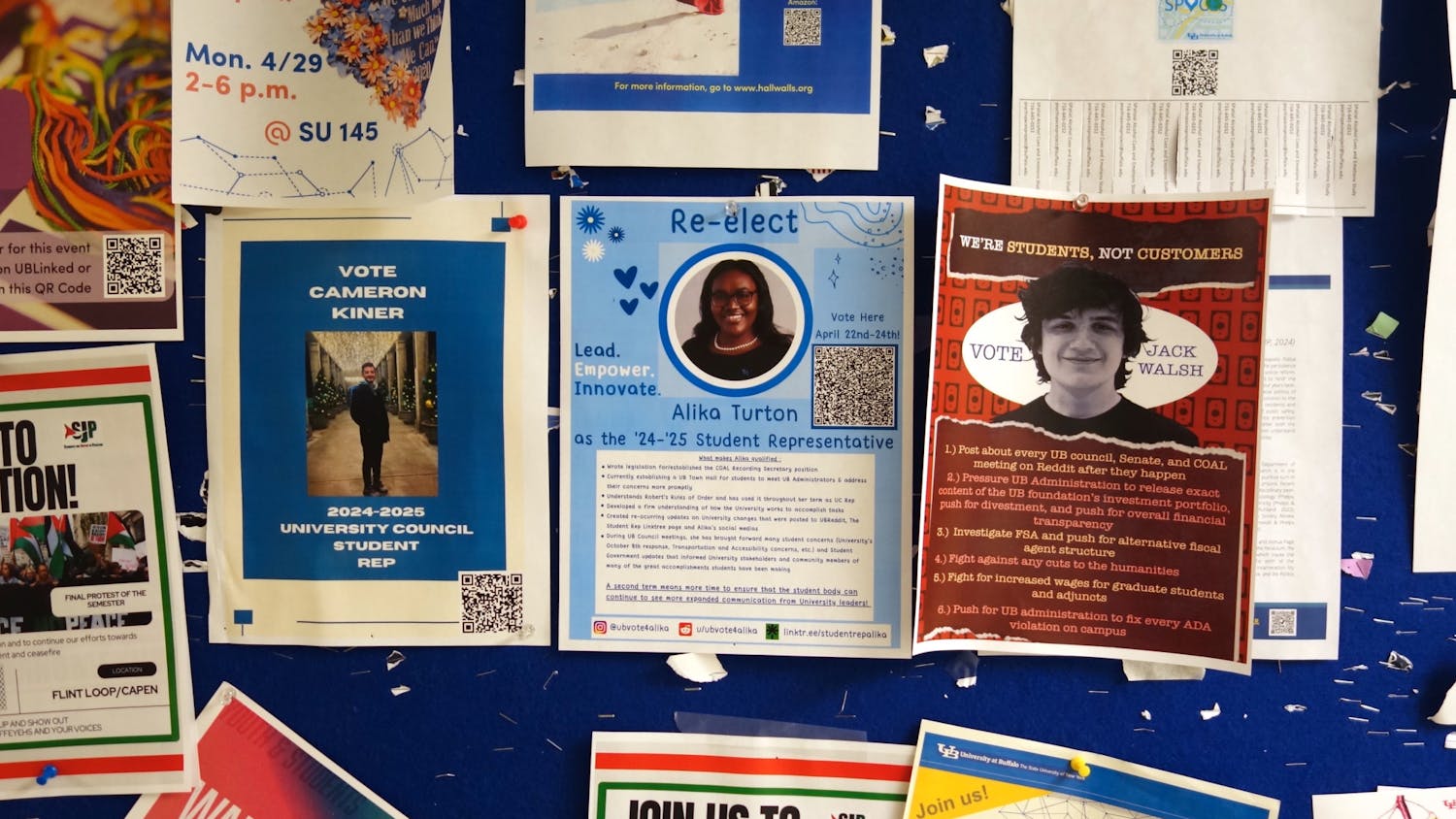A recent opinion piece published by The Spectrum expressed that UB professors make students uncomfortable when they bring up their political opinions in the classroom because some students inevitably disagree with those views and fear retribution if they speak out. The columnist asserted that because of this, professors should keep their political beliefs out of the classroom. The fear of retribution from professors is ridiculous and the idea that professors should just “shut up and teach,” as is heavily suggested by the piece, is an insult to the ideals of a free and open democratic society.
Professors are not just mouthpieces for education. They are people who have a vested interest in the politics of this nation, just like the students here at UB. They have as much right to express their political views as any other person. The fact that they are educators should not be a reason to discount that.
College is undoubtedly a different kind of learning environment compared to what most students have previously experienced. Unlike most high schools, middle schools and elementary schools, the culture in college is one of open dialogue between the instructors and students.
Spirited disagreement is a part of the college educational experience. Both professors and students know this. Students at UB are encouraged to respond to and question what professors teach so they can deepen their understanding of topics. Some topics that come up in class may be uncomfortable to talk about.
The abortion debate, the treatment of minorities, the historical injustices committed by the U.S. government and many other topics that come up in class discussions are hard to talk about and make many people uncomfortable, regardless of party affiliation or ideology, but that does not mean professors should avoid discussing them. Instead, they should create a dialogue so that everyone can hear and learn from different perspectives that they might not have previously considered.
The same is true regarding personal political views, regardless of whether a person is a professor or student. It would be antithetical to the First Amendment and the founding principles of democracy to punish professors for expressing their political views in class.
The likelihood of students facing retribution for disagreeing with professors is exceptionally low. Even if students do suspect that they are discriminated against based on personal disagreements with professors, there are multiple people and offices at UB with the power and responsibility to investigate and rectify the rare complaints of this type.
College is not about rote memorization of facts. The goal of college is to learn and grow. Having deeply held political ideas challenged may be disturbing to some, but that is not necessarily a bad thing. Having your ideals challenged and being forced to either defend or discard them helps you grow and critically examine your personal belief system.
Silencing the voice of one group based on their occupation is anti-democratic. Professors should not be punished simply for challenging their students’ worldviews. Democracy thrives on the competitive exchange of ideas and the dialogue between professors and students should not be cut off to protect the feelings of those who would rather not have their ideals challenged.
Timothy Dunn
Undergraduate political science student




